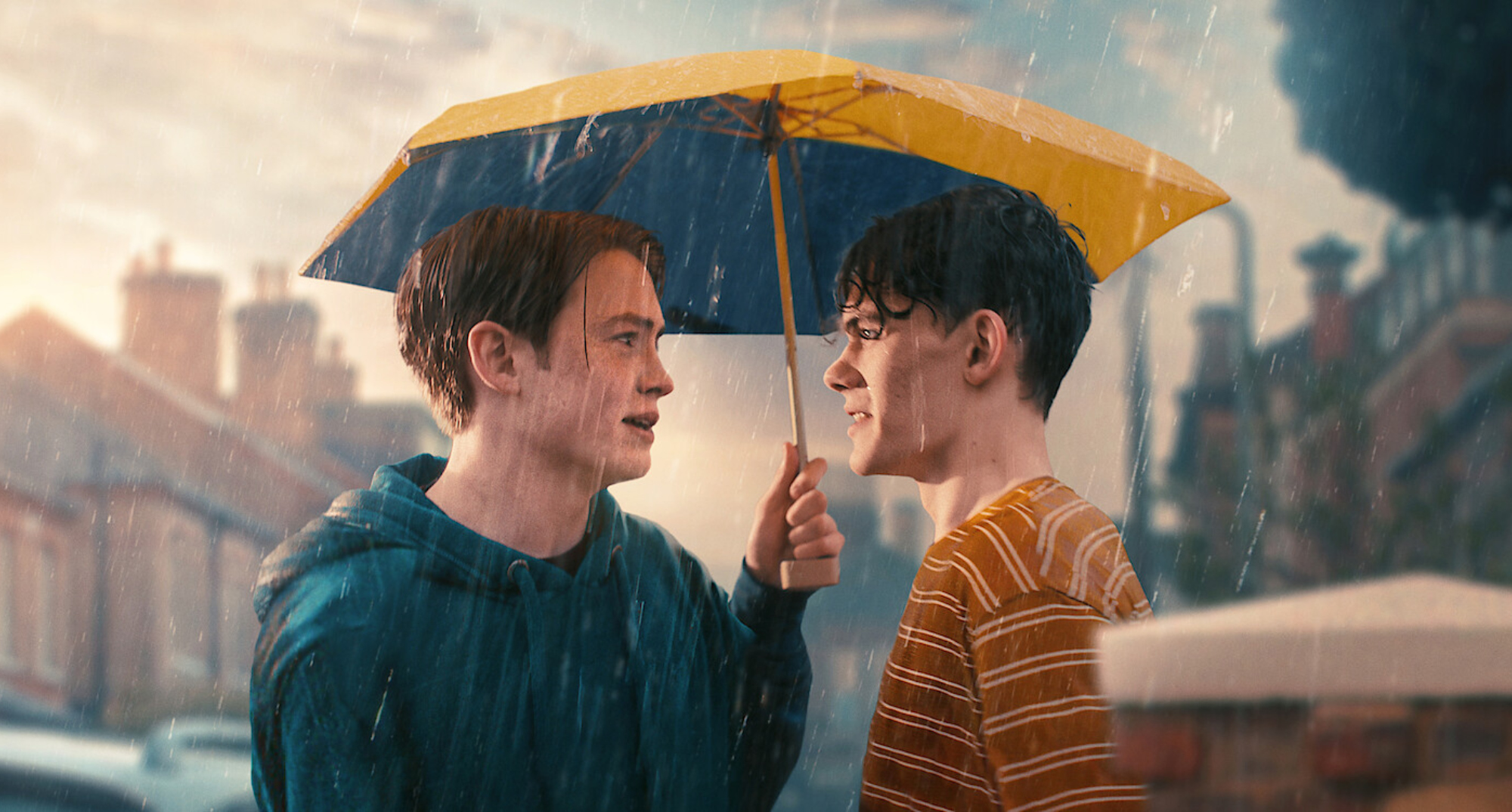‘Heartstopper’: Joe Locke Discusses What Coming out Means: ‘Take Your Time’
Joe Locke sees Netflix‘s Heartstopper as a positive view of an LGBTQ story for young audiences and audiences in general. The actor plays the role of Charlie Spring, the only openly gay student who begins to fall in love with Nick Nelson, a rugby player. Locke explains the many nuances of what it means to accept one’s sexuality and make it public.

Charlie Spring and Nick Nelson go on different journeys of self-discovery in ‘Heartstopper’
Fans have gravitated toward the series’ optimistic mindest in telling a coming-of-age LGBTQ story. Nick has been openly gay at school and is confident in who he is, but he still experiences bullying and reassurance. When he is assigned to sit next to Nick, he goes into a new self-evaluation phase.
Despite being accepted for his sexuality by his friends and family, Charlie experiences the reality that not everyone is open-minded. His boyfriend, Ben Hope, would rather keep their relationship secret than admit to his friends he is gay.
Along the way to becoming friends with Nick, Charlie starts to realize he is deserving of something more and someone who is not ashamed to be with him. Meanwhile, Nick begins to go on his own journey of discovering his feelings for Charlie are genuine and not shy away from them.
Locke explains coming out takes time and is happy Heartstopper can exhibit that story.
Joe Locke says coming out is not a one-time act, even for Charlie in ‘Heartstopper’
In a podcast interview with Reign with Josh Smith, Locke dives deep into what it means to accept one’s sexuality and what comes afterward. Locke explains, “Charlie’s experience is a universally relatable experience for a lot of queer people in that he’s out. But now what? That doesn’t mean that everything is magically okay.”
In Heartstopper, Charlie had been openly gay for roughly a year. He continues his journey of what it means to find love, be accepting of love, and break stereotypes. Charlie still has to overcome the notion that not everyone is welcoming.
“In Heartstopper, we show both Nick’s journey and Charlie’s journey. Charlie’s journey is what it’s like afterwards. Whereas Nick’s journey is sort of the start of it,” said Locke. The actor explains Charlie does not rush Nick to accept his sexuality or force him. He says by Nick’s side as a friend and maybe more.
“I think that people sort of rush before they’re ready, sometimes. It’s a big thing coming out. It’s a big thing sort of telling people who you are,” explained Locke. “Take your time, don’t rush.”
The actor wants shows to exhibit more of the ‘norm’ when it comes to LGBTQ stories
Locke sees Heartstopper as a way for fans and audiences to see sexuality, mental health, and relationships with the idea that things will be okay. In the podcast interview, Locke explains how fans were happy the male lead was not a “typical” with six-pack abs and extremely handsome.
While the actor comically says it’s a “backhanded compliment,” he agrees that LGBTQ series need to portray reality. “They’re right. It’s exactly that it’s, that’s not the norm. That’s not the norm at all,” said Locke. He says it is especially true on big TV series where “unrealistic body images are shown as the norm.”
Locke’s statement goes in tune with how Heartstopper developed its main cast. Netflix, Alice Oseman, and the producers wanted authenticity. This meant open casting calls that even shocked Yasmin Finney and Will Gao. The series also dives into the reality of mental health issues, the journey of self-discovery, and preconceived ideas.


